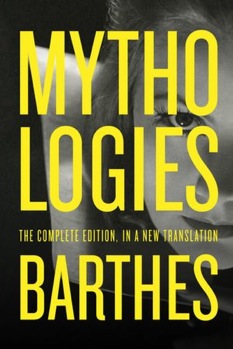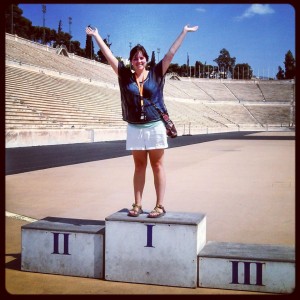 I was at Chipotle this weekend, waiting to order my favorite fast food (crunchy chicken tacos with veggies, heavy on the corn salsa). The man behind me in line spoke fluent English to a child with him, but when it was his turn at the counter, he looked at the young female employee and began ordering in Spanish. The glitch in the plan was that while he was talking to a woman with brown skin (who, according to popular identifiers, might have a better chance of being a Spanish-speaker than others), she was not a Spanish speaker at all; in fact, as she pointed out to him, she was Asian. After a few embarrassing laughs the burrito bowls and extra guac were ordered, and everyone scooted out the door. Continue reading “Habla Espanol?”
I was at Chipotle this weekend, waiting to order my favorite fast food (crunchy chicken tacos with veggies, heavy on the corn salsa). The man behind me in line spoke fluent English to a child with him, but when it was his turn at the counter, he looked at the young female employee and began ordering in Spanish. The glitch in the plan was that while he was talking to a woman with brown skin (who, according to popular identifiers, might have a better chance of being a Spanish-speaker than others), she was not a Spanish speaker at all; in fact, as she pointed out to him, she was Asian. After a few embarrassing laughs the burrito bowls and extra guac were ordered, and everyone scooted out the door. Continue reading “Habla Espanol?”
“Where There is Dirt There is System”
 If, as so many scholars now think to be the case, the participant’s self-representation is crucial to take into account when studying human behavior, then I’d hazard a guess that coal miners, while working underground, do not consider themselves to be dirty — at least not until they break for lunch or end their long shift in the dark. Continue reading ““Where There is Dirt There is System””
If, as so many scholars now think to be the case, the participant’s self-representation is crucial to take into account when studying human behavior, then I’d hazard a guess that coal miners, while working underground, do not consider themselves to be dirty — at least not until they break for lunch or end their long shift in the dark. Continue reading ““Where There is Dirt There is System””
Making Religion Central
A book in the local library, Chris Stedman’s 2012 memoir Faitheist: How an Atheist Found Common Ground with the Religious (Boston: Beacon Press), attracted my interest recently. In this book, Stedman, who self-identifies as an atheist, promotes pluralism and interfaith dialogue among the religious and non-religious. He strives to encourage people of different commitments to respect and listen to each other, as well as challenge each other, to counter the belligerent approach to religious people of those dubbed the New Atheists. He asserts that reconciliation can legitimize the status of the non-religious within society in a way that belligerence towards the religious never can. Continue reading “Making Religion Central”
Everything Old is New Again
Did you see this article posted at National Public Radio’s site? The Facebook post about the audio story read:

Sometimes the only option that remains in the endless effort to maintain relevance in a changing world is to resuscitate something old, such that reviving a style once judged outdated can, ironically, be seen as innovative.
Finding the Edges of a World Without End

If my previous post made any sense then scholars ought to cease looking for meaning, identity, or significance in the objects studied (like the holiness of the altar or debating which Muslim is the proper sort of Muslim). Rather than doing interpretive, let alone normative, studies we’ll instead examine the usually taken-for-granted systems that groups of people use to make sense of their world–to make the world as it happens to be into a manageable world that, if done “properly,” more than likely appears to all of us as if it always has been that way and therefore ought to continue being that way. Continue reading “Finding the Edges of a World Without End”
Mythologies
 There are few more relevant books for those interested in how systems of representation — in the most mundane and thus often unnoticed places — enable historical happenstance to be portrayed/perceived as timeless necessity than Roland Barthes‘s (d. 1980) classic collection, Mythologies. Originally published in the newspaper as brief commentaries on popular French culture, the short chapters have appended to them a lenghty theoretical essay, “Myth Today,” in which Barthes explains his approach to studying the multi-layered semiotic systems that we routinely see in daily life. In many ways, Mythologies, and the companion collection, The Eiffel Tower, model in their brevity but theoretical consequence what blog posts such as this site aspire to.
There are few more relevant books for those interested in how systems of representation — in the most mundane and thus often unnoticed places — enable historical happenstance to be portrayed/perceived as timeless necessity than Roland Barthes‘s (d. 1980) classic collection, Mythologies. Originally published in the newspaper as brief commentaries on popular French culture, the short chapters have appended to them a lenghty theoretical essay, “Myth Today,” in which Barthes explains his approach to studying the multi-layered semiotic systems that we routinely see in daily life. In many ways, Mythologies, and the companion collection, The Eiffel Tower, model in their brevity but theoretical consequence what blog posts such as this site aspire to.
I’ve Got Your Number
 A quick post in honor of our site’s Curator, who is currently seeing the sites/sights in Greece with Vaia, a member of Culture on the Edge: above is Andie on the victor’s podium at the white marble Panathenaic Stadium — (re)built for the first modern Olympic games, in 1896, on the remains of an 4th century BCE stadium that hosted what we consider to be the ancient games. Continue reading “I’ve Got Your Number”
A quick post in honor of our site’s Curator, who is currently seeing the sites/sights in Greece with Vaia, a member of Culture on the Edge: above is Andie on the victor’s podium at the white marble Panathenaic Stadium — (re)built for the first modern Olympic games, in 1896, on the remains of an 4th century BCE stadium that hosted what we consider to be the ancient games. Continue reading “I’ve Got Your Number”
The C-Word
 There’s been a fair bit of news stories not just about what went on in Egypt the other day but, more specifically, about the U.S. reaction to what went on in Egypt the other day. With around $1.5 billion in annual U.S. foreign aide on the line (second only to its aide to Israel), the reaction is curiously (or predictably? — now that’s a good question!) focused, at least for the time being, on what to classify — and thereby how to understand and react to — what just happened. Sure, an Egyptian general stepped in front of a camera, the duly elected (though now widely unpopular) President was deposed and detained, a number of his party’s senior leadership were also detained, the Constitution was suspended, and military officers swore in its own pick as interim President.
There’s been a fair bit of news stories not just about what went on in Egypt the other day but, more specifically, about the U.S. reaction to what went on in Egypt the other day. With around $1.5 billion in annual U.S. foreign aide on the line (second only to its aide to Israel), the reaction is curiously (or predictably? — now that’s a good question!) focused, at least for the time being, on what to classify — and thereby how to understand and react to — what just happened. Sure, an Egyptian general stepped in front of a camera, the duly elected (though now widely unpopular) President was deposed and detained, a number of his party’s senior leadership were also detained, the Constitution was suspended, and military officers swore in its own pick as interim President.
It looks an awful lot like a coup and it sure smells like a coup, yes — but is it a coup? Continue reading “The C-Word”
All-American Fireworks, Hamburgers, Frankfurters and Yoga

With all-American Fourth of July festivities like fireworks, frankfurters, and hamburgers, we continually construct our identification with an imagined community, as Benedict Anderson emphasized thirty years ago. Like the nation, the values that we associate with the United States, (e.g., democracy, equality, and liberty) are imagined constructs whose conceptions shift over time.
The United States is a nation of immigrants with the Statue of Liberty welcoming the “huddled masses” one of those frequently invoked traits. Beyond questions over the place of Native Americans in the nation of immigrants and contemporary debates over “immigration reform” and “border security,” the recent court case involving a yoga program in the Encinitas, California, public schools (which I have discussed previously here and here) illustrates the imagined nature of this national trait in a surprising way. Continue reading “All-American Fireworks, Hamburgers, Frankfurters and Yoga”
Agreement and the Right to Speak
 People who identify themselves as a member of a community sometimes limit who can represent “their” community, especially if they perceive the community as marginalized or misrepresented in some fashion. Generally, the argument is that only those identified as being within the community have the right to make public representations of it. As an example, a few who identify as Hindus have complained about those not born as Hindus making public and academic assertions about things designated “Hinduism.” Continue reading “Agreement and the Right to Speak”
People who identify themselves as a member of a community sometimes limit who can represent “their” community, especially if they perceive the community as marginalized or misrepresented in some fashion. Generally, the argument is that only those identified as being within the community have the right to make public representations of it. As an example, a few who identify as Hindus have complained about those not born as Hindus making public and academic assertions about things designated “Hinduism.” Continue reading “Agreement and the Right to Speak”
